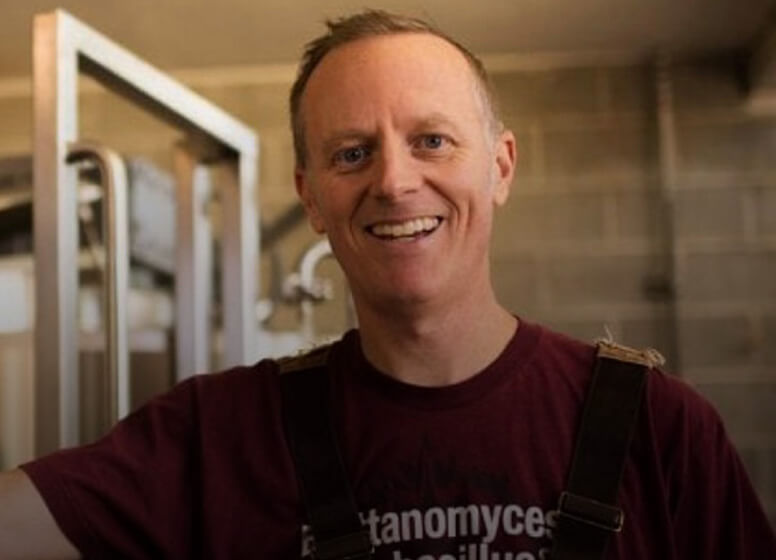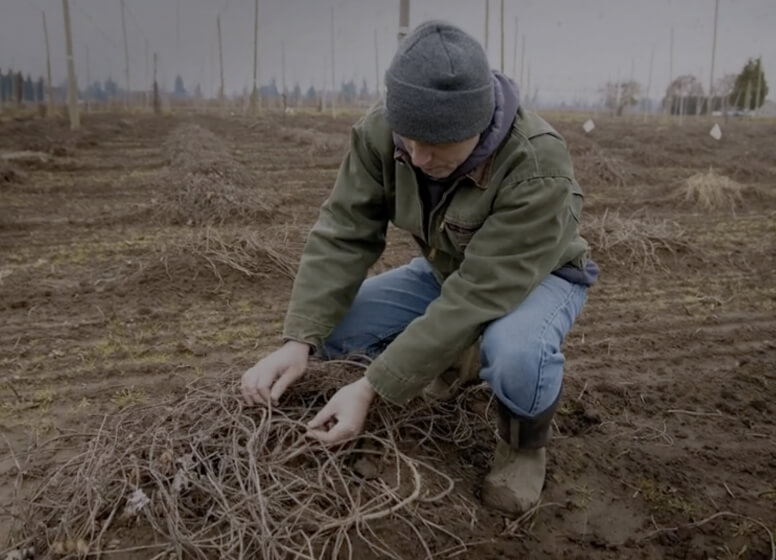Plant breeding—a great way to make commercial agriculture more compatible with the environment
Based at Oregon State University, Townsend puts plants through a “hop gauntlet”—exposing them to diseases, pests, and other adverse conditions. “He will make it a difficult situation for these plants,” states Jim Solberg, Indie Hops CEO. “Inoculate them in the greenhouse with downy mildew, powdery mildew, just a bunch of nasty stuff that hops don’t like generally, but some of them deal with it quite well. From an agronomy standpoint, that’s what we’re looking for—plants that have natural disease resistance so that they can then be grown commercially and require lower chemical inputs.”
BREEDER PERSPECTIVE
"Future-proofing" our hop varieties
Watch the Video
Townsend also takes into account how hops are affected by climate change factors such as warmer winters and earlier springs, reduced water availability during the growing season, increased spring flooding, and weather events such as the 2021 heat wave that hit the Pacific Northwest. These circumstances have an effect on the hop plants themselves, and also influence how pests and their beneficial predators behave.
“There have probably been some pretty amazing hops that were never sent up to us for sensory evaluation because they didn’t meet Shaun’s agronomy goals,” states Solberg. “I shudder at that thought, but it sure beats getting super excited about a hop with crazy brewing character that we then find isn’t viable to grow commercially.”
“We’re very supportive of the personal challenge Shaun has put upon himself to raise the bar of disease resistance and climate tolerance in our new commercial hop cultivars.”
/ JIM SOLBERG, CEO @ INDIE HOPS
During the 2023 harvest we caught up with Gayle Goschie, fourth generation hop grower, and Theo Freyne, owner of DEYA Brewing Company in the UK, to get their take on our changing climate. Goschie Farms has been a leader in sustainable growing practices, being the first hop farm to become salmon-safe certified, as well as being early adapters of micro-irrigation. DEYA Brewing focus on sustainable practices in their brewery — from the inclusion of carbon labeling on each can of beer to climate change mitigation via wetlands restoration.
GROWER PERSPECTIVE
Gayle Goschie on sustainable hop growing
Watch the Video


